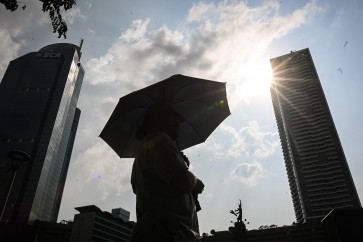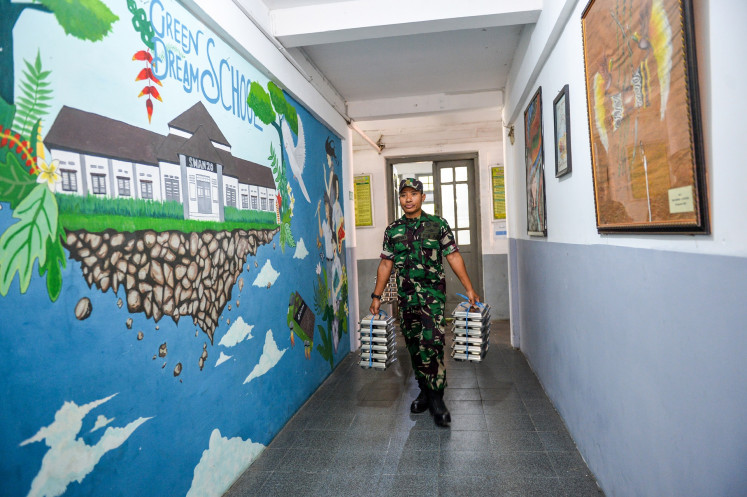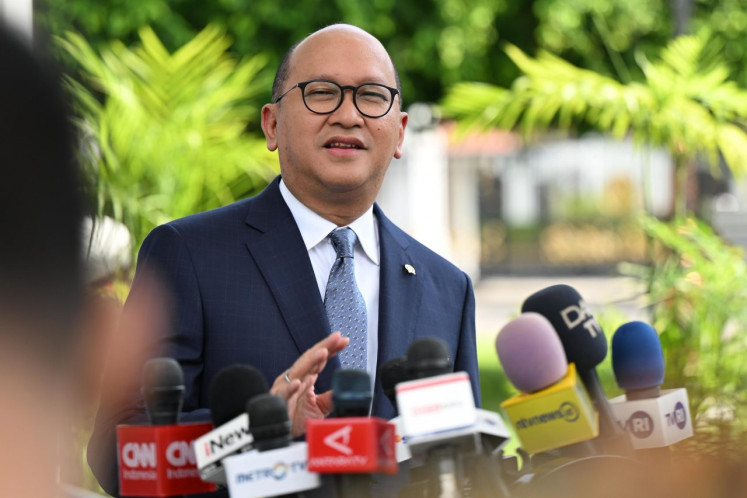Popular Reads
Top Results
Can't find what you're looking for?
View all search resultsPopular Reads
Top Results
Can't find what you're looking for?
View all search resultsBahana: Well-shielded from external volatility with Java taking the lead
Indonesia's gross domestic product (GDP) composition remains largely dependent on domestic consumption
Change text size
Gift Premium Articles
to Anyone
Indonesia's gross domestic product (GDP) composition remains largely dependent on domestic consumption. Net exports account for around 10 percent of GDP while private plus government consumption accounts for close to 65 percent.
Against a backdrop of global economic slowdown, this provides safety for investors.
It is worth pointing out that throughout 2008 thus far, Indonesia's GDP has continued to book positive momentum with GDP in the third quarter of last year up 3.5 percent from a quarter earlier.
For the whole of 2008, our economist still expects Indonesia to book at least 6.0 percent GDP growth.
Thus, in 2009, although we expect Indonesia to suffer from declining exports and investments given slowing global economies, we still expect GDP to remain positive at 4.8 percent, helped by government pump priming ahead of the 2009 elections, particularly in Java.
In addition, we expect lower food inflation coupled with lower fuel prices stemming from low commodity prices to accelerate the recovery of purchasing power in Java. Thus far, we have seen regular gasoline prices at the pump having been reduced twice to Rp 5,000 per liter, or down Rp 1,000 per liter, since the beginning of December 2008.
We must not underestimate the impact of this 17 percent reduction on gasoline prices on consumption.
For example, a taxi driver in Jakarta who on average utilizes 20 liters of gasoline per day will be able to save around Rp 600,000 (US$55) per month to be channeled to other needs.
By Jan. 15, according to the government, we could see further cuts in fuel prices, including diesel, which would have a larger impact as diesel fuel is widely used for transportation.
With oil at around $45 per barrel, the Indonesian government is currently paying Rp 3,900 per liter based on our estimate.
With the long-term oil price at $30/bbl, excluding the speculative element which occurred between second quarter of 2006 and second quarter 2008, the pricing outlook should remain on the downside in 2009 in spite of the current price spike due to the Gaza ordeal and OPEC's efforts to reduce output.
In 2009, we expect the outer islands' performances to continue to remain weak on the back of low commodity prices. However, we are hopeful that Java, home of the majority of voters, would be able to take up the slack.
With 2009 elections just around the corner, the parliament has asked to end the direct cash transfer program (BLT) of Rp 100,000 per month per targeted household. This will end in February 2009.
However, the central government is already implementing an anti poverty funding program through to 2015 called the National Program for Community Empowerment (PNPM Mandiri) by providing up to Rp 3 billion per sub district to be channeled out to those who require working capital.
This Rp 11 trillion ($1 billion) job creation program to 6,408 sub districts should help offset the adverse impact of lower disposable income stemming from rising unemployment. With most of the voters being in Java, we believe the PNPM Mandiri scheme will be prioritized for the Javanese in 2009.
With Java accounting for around 60 percent of Indonesia's population, the government has no choice but to focus on the welfare of the Javanese if it wants to get re-elected.
Historical data suggests that there was a noticeable pick up in Java's consumer confidence during the 2004 elections. We expect this to recur in 2009.
The writer is the senior vice president and head of research at Bahana Securities










